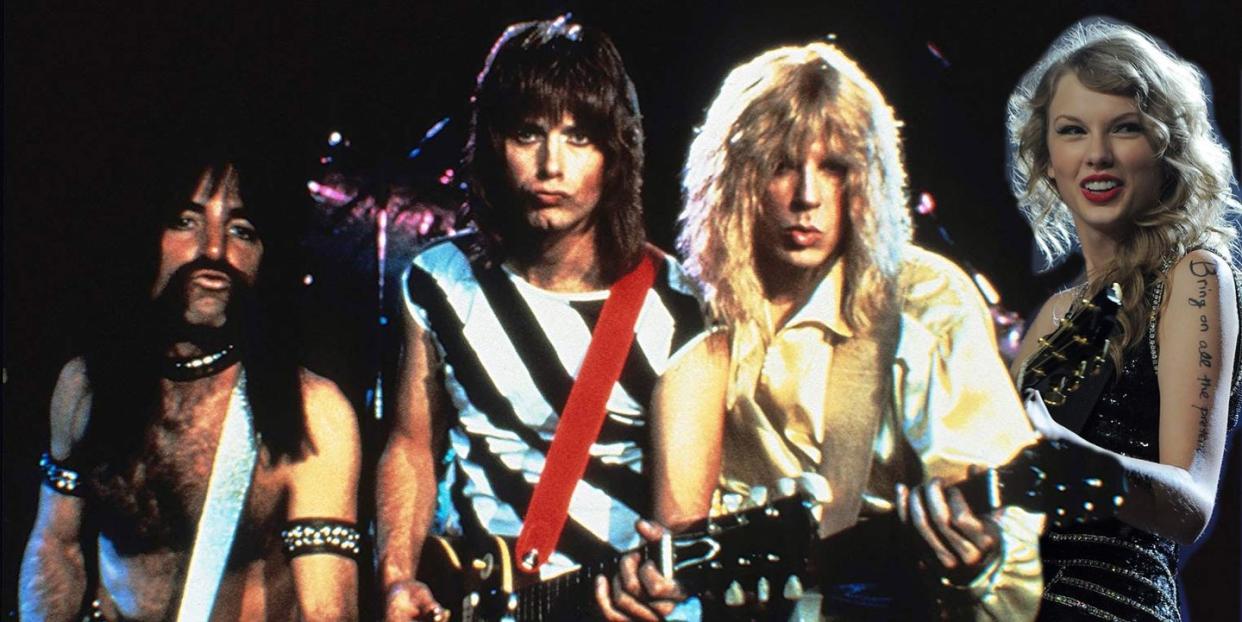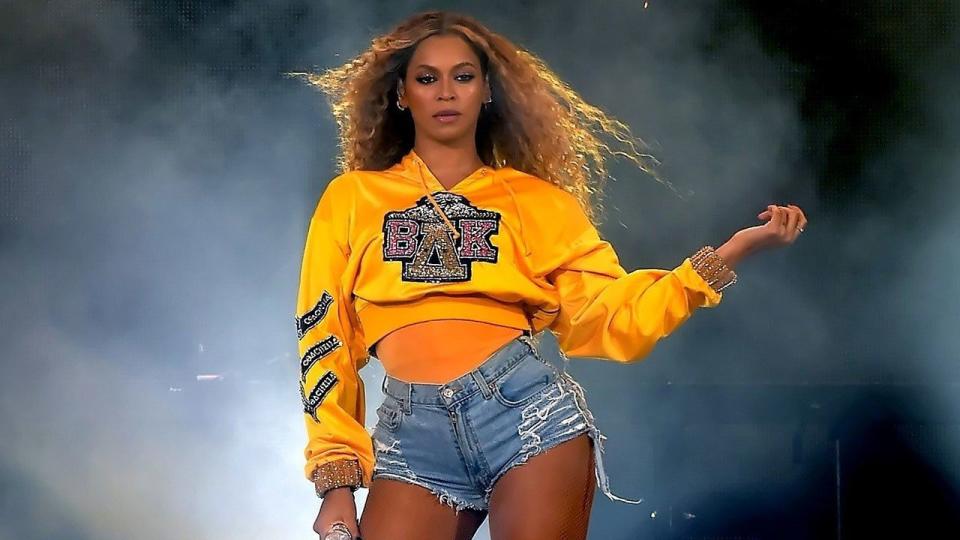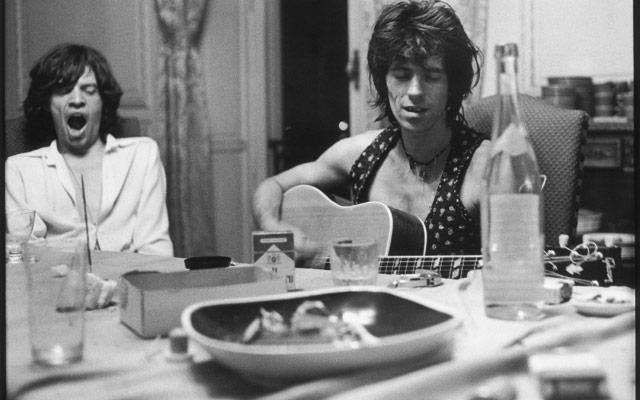Can We Stop Pretending That Pop Star Documentaries Are Actual Documentaries, Please

The first reviews for Taylor Swift's Miss Americana doc are in ahead of its Netflix release next week, and they're fairly positive, focusing especially on the fact that she talks candidly about struggling with an eating disorder. Still, the same sentiment keeps rearing its head: the doc is 'glossy', 'conventional', 'sanded-off'.
They're not exactly the words you want attached to a behind-the-scenes confessional from a generationally brilliant pop star. Much less one who's finally starting to take positions on issues from LGBTQ+ rights to white supremacism, after years of basically saying, "Aw shucks," every time she was asked about anything more political than her own cats.
Really, though, it's surprising that any of this is surprising. Swift follows Lady Gaga, Katy Perry, One Direction, and Beyoncé, who've all knocked out documentaries in the last few years, but by most measures they're not really documentaries.
Twenty Feet From Stardom is a documentary. Amazing Grace is a documentary. After the Screaming Stops is a documentary. As It Was is a party political broadcast on behalf of the Liam Gallagher Party.

(Sidebar: to be fair, Homecoming is in a category of its own here. Beyoncé, writer, director, and executive producer, is the only person big enough to get away with a film staking her claim as an epochal performer because, you know, she is, and everyone already thought she was anyway. But even there you tacitly accept that you're watching a victory lap which reinforces her untouchability and finesses her political stance, and you watch it in part because Beyoncé was so heavily involved in making it. It's amazing, but it's more a video essay designed to cement her creative legacy than a documentary. Right, back to Taylor et al).
The non-documentary documentary is not a new idea. Watching ABBA: The Movie doesn't just make you feel like you've not learned anything about ABBA, it also makes you think you've forgotten most of the things you used to know about ABBA. However, the doublethink involved now is different: you know you're going to watch a film that's filtered to the point of being a press release, but they're spun as being a paint-stripping verité document to rival Cocksucker Blues.

It's not just pop stars either: Amazon's Manchester City and Leeds United documentaries added just enough not-quite-jeopardy (they need a new right-back – but they've only got £50 million to work with!) and shouting to make it feel like you were getting a peek through the blinds. But neither shed enough light to dull the polish on the authorised story.
You can see the appeal of a non-doc doc if you're involved behind the scenes in some capacity: vet the questions, set the timetable, pick the director, settle some scores. It's a chance to explain why, actually, you were right all along and you actually don't regret any of the missteps along the way and actually they weren't missteps anyway because blah blah blah and needless to say, I had the last laugh.
It's also considerably cheaper and less potentially embarrassing than trying to make your own Purple Rain, which, as Prince found out himself, can very quickly turn into your own Under the Cherry Moon (the film: five Golden Raspberries; the album it spawned, Parade: perfect). Making an actual, proper film-film is hard. Truly, properly hard. It's gutting that no current pop star would bother to make something as vibrant as Spice World, as artily arch as Pet Shop Boys' It Couldn't Happen Here, or as obviously crap as Paul McCartney's Give My Regards To Broad Street. It does make a lot of sense though. Doing a few hours of interviews in your own massive house and allowing a couple more cameras to follow you around for a few months is extremely easy. Basically, these documentaries are feature-length versions of MTV Cribs, with some bonus crying.
An authorised doc is also less overtly hubristic than anything in the rapidly expanding Dad Rock Extended Universe, though they serve the same purpose. An upcoming biopic of the Bee Gees will follow Elton John's Rocketman, NWA's Straight Outta Compton and the risible Queen-fest Bohemian Rhapsody. The Oscar-winning Freddie Mercury biopic is an example of what can happen when musicians try to control their own myth. The original pitch reportedly had Freddie dying about halfway through, which left plenty of runtime for What Happened Next, as the surviving members become national treasures and hang out with Paul Rodgers from Free. They might as well have called it Queen: Bouncing Back, and put Brian May holding a tennis ball on the promo posters. Musicians meddling in other areas would do well to remember what Slade's Noddy Holder snapped at drummer Don Powell during a band dispute in their own mock-biopic, Slade In Flame: "Get back in goal, goalie."
Swift's not going to be the last pop star to make a film for a streaming titan, but if she wanted the kind of kudos and authenticity points that a proper documentary confers on its subject, she should have given up control and let it be a proper documentary. But if you're basically the CEO of a business that turns over the GDP of a small island nation each year, that's a mug's game. Instead, we get conservative films that posture as being revolutionary. They're a great way to sell tickets. But please, don't pretend they're anything more than very long ads.
Like this article? Sign up to our newsletter to get more delivered straight to your inbox.
You Might Also Like


